The U.S. President Donald Trump has been nominated for the 2021 Nobel Peace Prize — something that probably his ardent supporters may not have expected. Trump's nomination came from a Norwegian official after he brokered a landmark peace agreement between the United Arab Emirates (UAE) and Israel a few weeks ago.
The Nobel Prize is seen as the highest honor for contribution to a variety of fields. And Norway's right-wing parliamentarian, Christian Tybring-Gjedde believed Trump's contribution was enough to earn him a nomination.
"For his merit, I think he has done more trying to create peace between nations than most other Peace Prize nominees," Tybring-Gjedde, who is also the chairman of the Norwegian delegation to the NATO Parliamentary Assembly, told Fox News. He nominated Trump in 2018 as well.
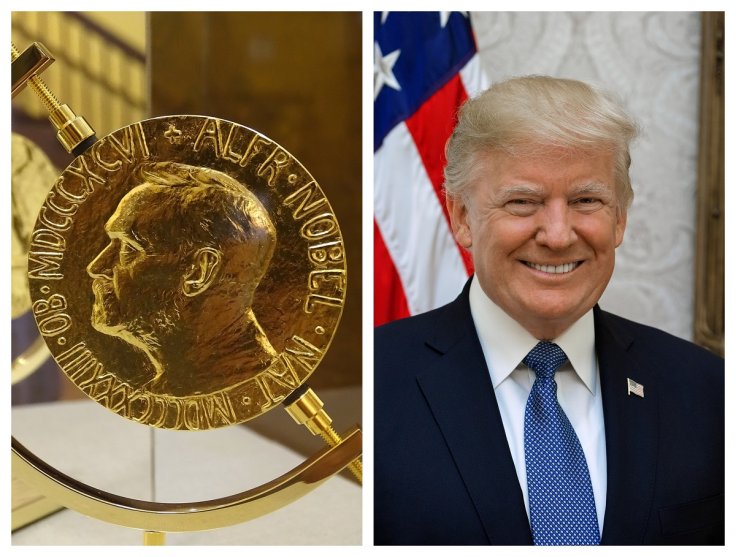
If he wins the 2021 Nobel, Trump will be among the few U.S. Presidents who were awarded the coveted prize that was established in 1901. Theodore Roosevelt was the first U.S. President to receive the honor in 1906 followed by Woodrow Wilson in 1919, Jimmy Carter (2002) after his presidency and Barack Obama in recent times (2009).
Global Peace Broker?
In his nomination letter, Tybring-Gjedde wrote that the Trump administration played a major role in the Israel-agreement that could be "a game-changer." "As it is expected other Middle Eastern countries will follow in the footsteps of the UAE, this agreement could be a game-changer that will turn the Middle East into a region of cooperation and prosperity," he said.
According to him, Trump is a global peace broker, who has facilitated conflicting parties such as India-Pakistan and North-South Korea and also thwarting Kim Jong Un regime's nuclear capabilities, though success remained elusive in either. Let's see a few examples of Trump's peace deals.
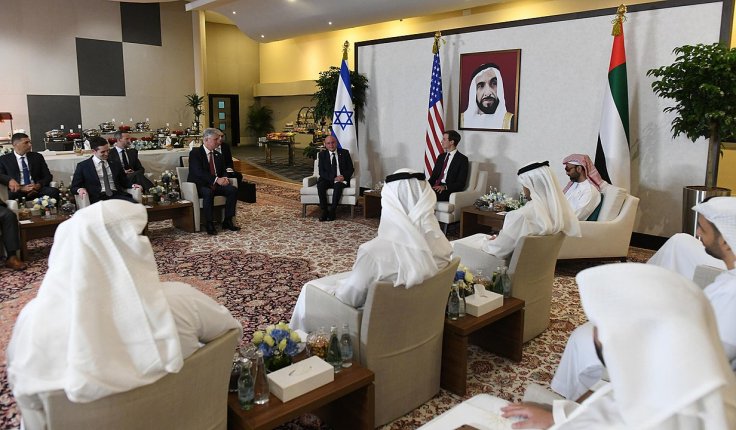
Middle East
As for peace in the Middle East, the region is as chaotic as it was 20 years ago, with Syria and Libya still fighting their civil wars while Iraq is in shambles after the withdrawal of U.S. troops. Trump managed to pull out of a crucial Iran nuclear agreement that would have kept the nation in check. But with no agreement in place, Iran has become hostile with multiple economic sanctions, escalating the tension.
However, the ace of his Nobel nomination is restraining Israel from annexing the West Bank. Israeli occupation would have riled Palestine and other Islamic countries of the region. But as per Haaretz, Israeli Prime Minister Benjamin Netanyahu never planned to annex parts of West Bank. Instead, the deal was rather one-sided, in favor of Israel and the UAE never actually brokered peace on behalf of Palestine.
North Korea
With the North Korea-U.S. summit in Singapore in 2018, it signaled a long-awaited peace agreement that would have also relieved South Korea. Instead, in the Vietnam summit in 2019, Trump didn't believe lifting economic sanctions would help North denuclearize and that effectively pulled Kim out of the agreement, albeit, unofficially.
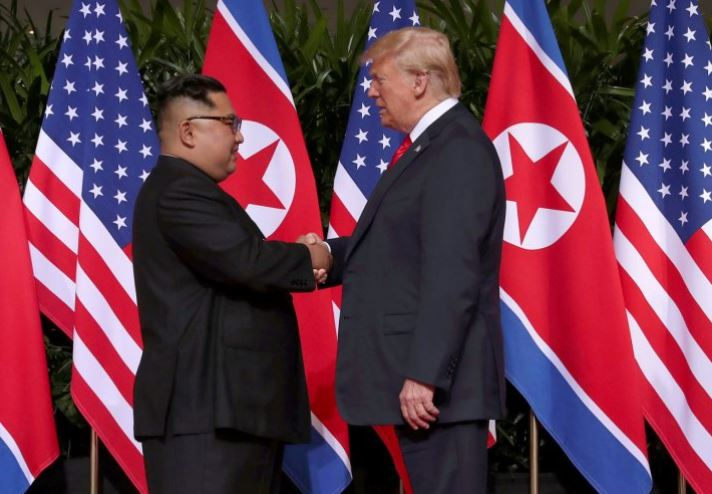
The tension in the Korean peninsula has escalated further with North Korea blowing up an inter-Korea liaison office in Kaesong following South Korean President Moon Jae In's inability to keep protesting defectors in check. Since then, Kim's regime has deployed troops along borders and has kept its military battle-ready even when the country went through severe food shortage and flooding.
India-Pakistan
Following terrorist attacks in India's Pulwama in February 2019, where 40 Indian soldiers were killed, the Indian Air Force launched strategic strikes on terrorist locations in Pakistan. The counter strike escalated tensions between two countries with Pakistan keeping the airspace shut for a few months and shot an Indian Air Force plane down. During the summit in Vietnam, Trump offered to mediate. But neither Pakistan nor India thought Trump would be of any help. Instead, since then, both countries have had multiple border confrontation.
China
Probably, the biggest failure in Trump's peacekeeping image is escalating tensions with China. While Trump was not wrong in assessing China's aggressive diplomatic polices, a trade war and arrest of Huawei CFO Meng Wanzhou's in Canada strained the relation further. But with Trump and his cabinet members accusing China of falsifying Coronavirus pandemic data and even creating the virus at Wuhan lab without any evidence has worsened the situation.
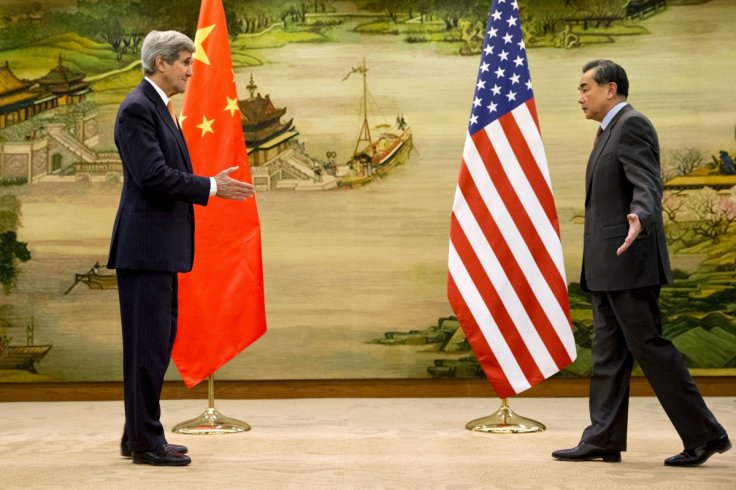
Domestic Policies
If Trump's foreign polices didn't have much bearings to win the Nobel Peace prize, his domestic policies too were far from ideal. He won the election, promising to build a border wall to prevent migrants, especially Mexicans to enter the U.S. Then, he wanted to "bomb the s**t out of ISIS" and then announced a travel ban, mostly for Islamic countries. His migration policies too have been criticized as it separated children from their parents and kept in temporary lodging, similar to a detention camp.
Politically Motivated
Even Obama, who received the honor within just nine months of coming into the office, was involved in multiple Middle East situations. The infamous Benghazi attack of 2012 and involvement in the Syrian civil war also played down his achievements.
Former Nobel Peace prize-winning group ICAN (International Campaign to Abolish Nuclear Weapons) last year said Trump didn't deserve the honor and probably the above-mentioned reasons may stand against him again.
"The Nobel Peace Prize is given for efforts to create peace and Alfred Nobel was specifically thinking of disarmament," Beatrice Fihn, ICAN's Executive director, who collected the prize told Newsweek.
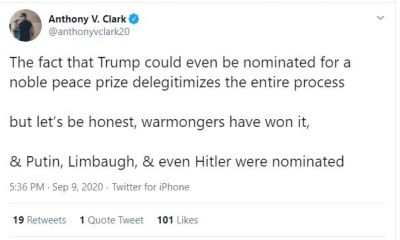




"The Trump Administration has embarked on a new nuclear arms race, has torn up Cold War-era disarmament treaties, is spending $1.7 trillion on making his nuclear weapons more usable, and has threatened North Korea and Iran with nukes. Does that sound worthy of a peace prize? Of course not," she added.
But Trump has his reasons too. Last year, Trump was snubbed from Nobel Peace prize nomination in favor of Ethiopian Prime Minister Abiy Ahmed Ali. Trump said, he brokered the deal but the Nobel prize committee chose Ali instead, saying the system was unfair.
"I think I'm going to get a Nobel Prize for a lot of things — if they gave it out fairly, which they don't," he said. Now that he is nominated, would it change his view of the Nobel Prize committee?








